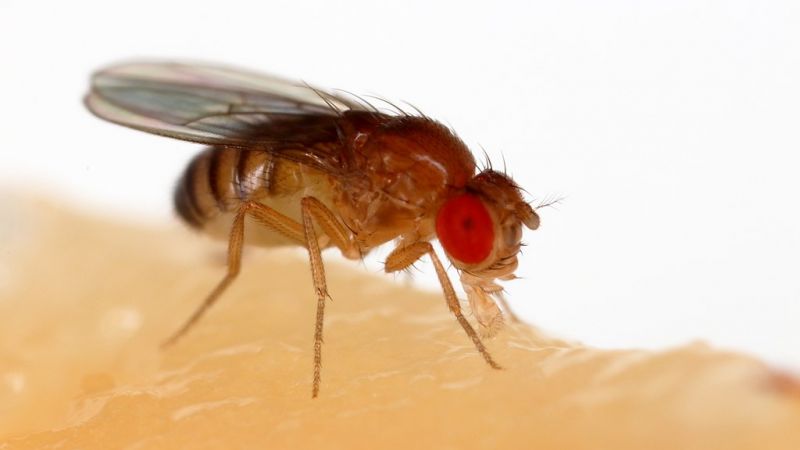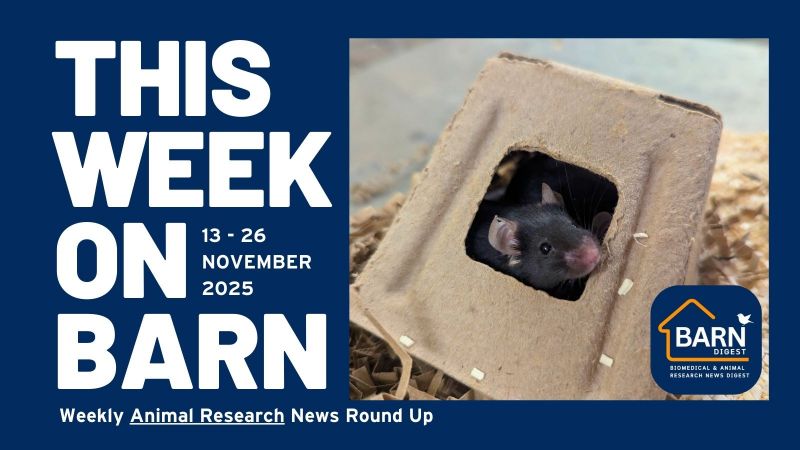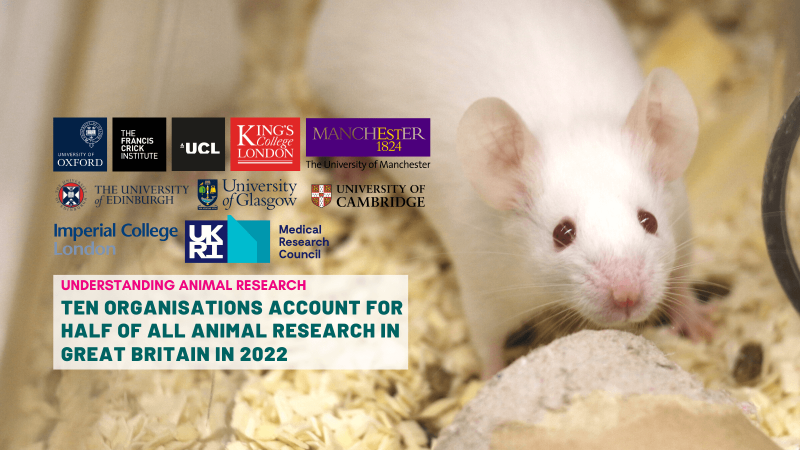
 The Biomedical Animal Research News (BARN) Digest collates animal research news from UAR’s 150+ member organisations into one, easy to access, feed. These animal research related stories include topics such as: medical studies and advancements; animal welfare and 3Rs news; funding, regulatory, and policy news; and conservation and environmental research that involves animal testing.
The Biomedical Animal Research News (BARN) Digest collates animal research news from UAR’s 150+ member organisations into one, easy to access, feed. These animal research related stories include topics such as: medical studies and advancements; animal welfare and 3Rs news; funding, regulatory, and policy news; and conservation and environmental research that involves animal testing.
Each week, we pick the most interesting, groundbreaking, and important news to feature in a weekly news roundup. In this round up we feature news stories from 24 - 30 April 2025.
View BARN to see daily news updates from UAR members.
BASIC RESEARCH
How resilient nerve cells fight back against dementia
UCL | FRUIT FLIES
"A UCL research team has found clues as to why some nerve cells die in dementia and not others, in a new study in fruit flies. The researchers investigated why some nerve cells in fruit fly brains are resistant to disease processes that cause frontotemporal dementia (FTD) and amyotrophic lateral sclerosis (ALS) in humans, while others are more vulnerable."
https://www.ucl.ac.uk/news/2025/apr/how-resilient-nerve-cells-fight-back-against-dementia
Uncovering the hidden complexity behind the brain’s master clock
MRC LMB | MICE
"To directly image the proteins in question, the team developed reporter mice in which PER2, CRY1 and BMAL1 were tagged with fluorescent markers, enabling real-time monitoring of these proteins in live SCN tissue slices."
https://www2.mrc-lmb.cam.ac.uk/uncovering-the-hidden-complexity-behind-the-brains-master-clock/
New clues as to why drugs are effective for Alzheimer’s disease
UCL | MICE, HAMSTER (CELLS AND TISSUES)
"Using new, highly sensitive methods, the researchers detected and visualised how amyloid beta protein – a plaque that builds up in the brains of people with Alzheimer’s disease – binds to lecanemab, donanemab, gantenerumab and aducanumab."
https://www.ucl.ac.uk/news/2025/apr/new-clues-why-drugs-are-effective-alzheimers-disease
Researchers uncover how intestinal parasite Cryptosporidium alters host cells
THE FRANCIS CRICK INSTITUTE | MICE
"When MVP1 was removed from a strain of Cryptosporidium, using CRISPR-based genetic editing, the elongation of microvilli within infected cells was completely blocked. This strain of MVP1-deficient parasites also failed to cause a normal infection in mice."
DRUG DEVELOPMENT
Clotbuster drug is new hope for stroke treatment
UNIVERSITY OF MANCHESTER, BRITISH HEART FOUNDATION | MICE
"A new clotbusting drug tested on mice has been shown by University of Manchester scientists to be significantly better at treating ischemic stroke than existing therapies. The compound, developed by the scientists and known as caADAMTS13, could be a breakthrough for patients who have brain blood clots with an overabundance of platelets- the tiny cell fragments that help form clots and are often not treatable by existing therapies."
https://www.manchester.ac.uk/about/news/clotbuster-drug-is-new-hope-for-stroke-treatment/
UCL spinout Autolus gains UK licence for cancer therapy
UCL | CAR-T-CELL THERAPY DEVELOPED IN ANIMALS
"Autolus Therapeutics, a UCL spinout company, has received authorisation from the UK Medicines and Healthcare products Regulatory Agency (MHRA) for a next-generation CAR T-cell therapy developed to treat adults with an aggressive blood cancer."
https://www.ucl.ac.uk/news/2025/apr/ucl-spinout-autolus-gains-uk-licence-cancer-therapy
BEST PRACTICE GUIDELINES
New Framework Aims to Eliminate Sex Bias in Preclinical Research
MRC HARWELL | STUDY DESIGN
"A group of researchers and policy leaders from organisations involved in in vivo and ex vivo research have unveiled a transformative tool to assist scientists, policy makers, funders and reviewers in eliminating persistent sex bias in biomedical research. Published today in Nature Communications, the Sex Inclusive Research Framework (SIRF) introduces a structured and interactive approach to ensure equitable inclusion of male and female samples in preclinical studies."
https://www.har.mrc.ac.uk/news/new-framework-aims-to-eliminate-sex-bias-in-preclinical-research/
NON-MEMBER REPORTING
The Sex Inclusive Research Framework: Challenging misconceptions and fostering change
NC3RS | STUDY DESIGN
"A new publication in Nature Communications outlines a tool to check whether sex has been considered when designing and assessing in vivo (animal research) research proposals."
Visit BARN for daily news updates
Last edited: 20 October 2025 13:23



